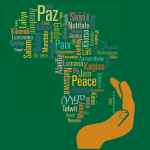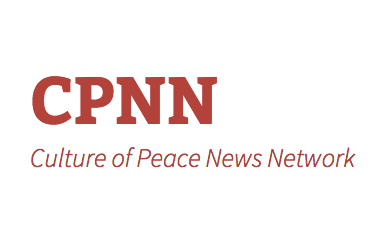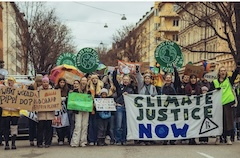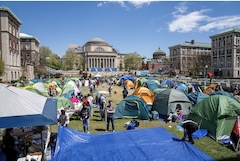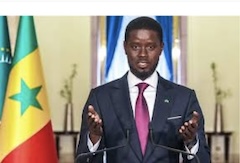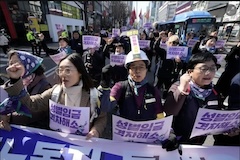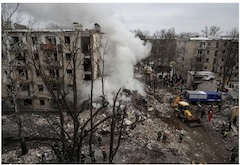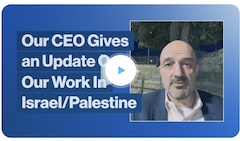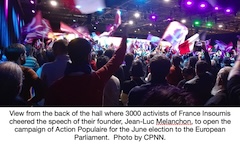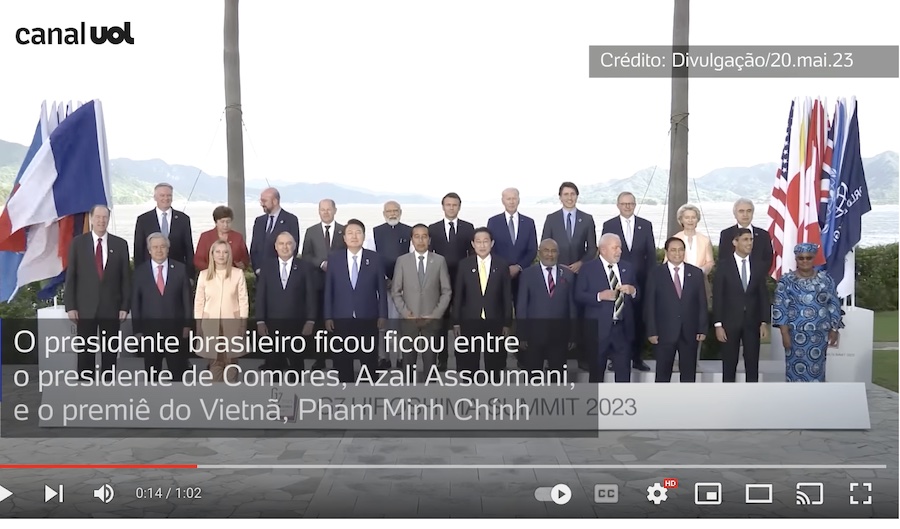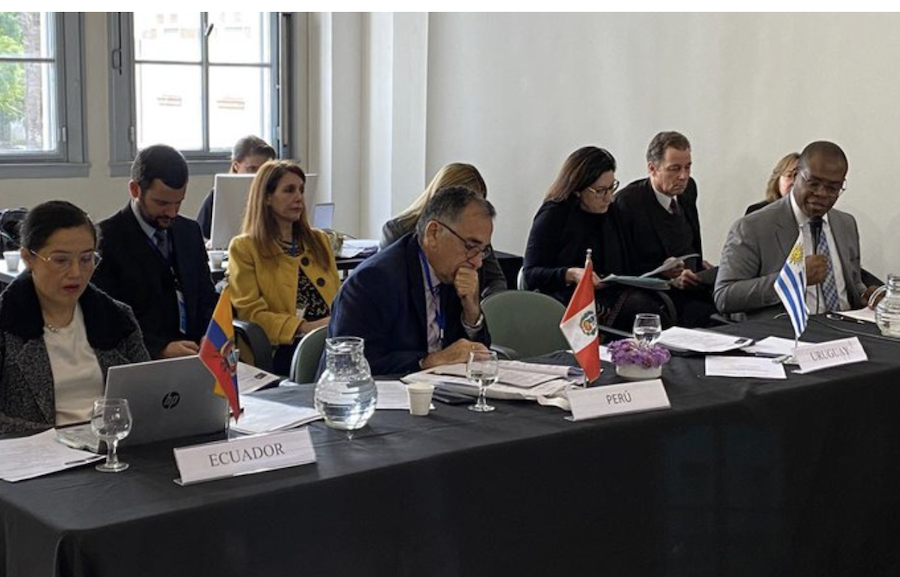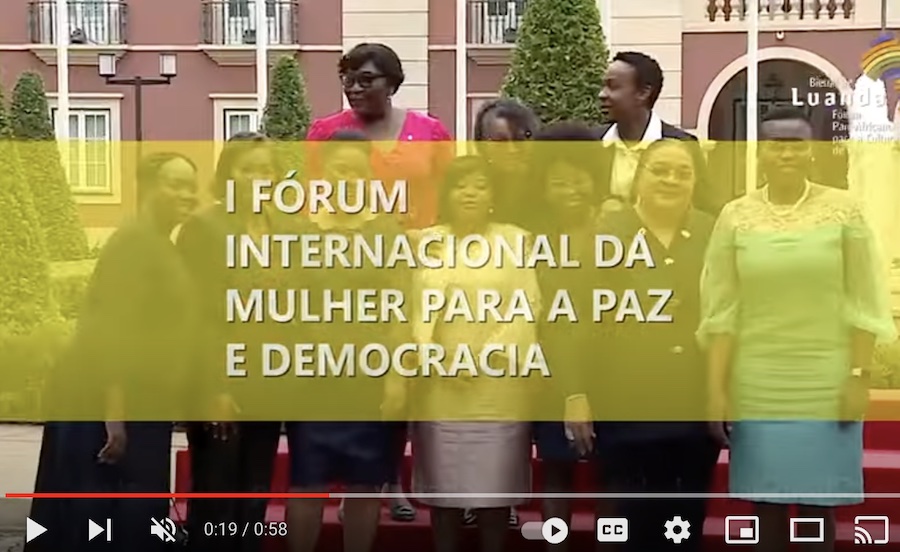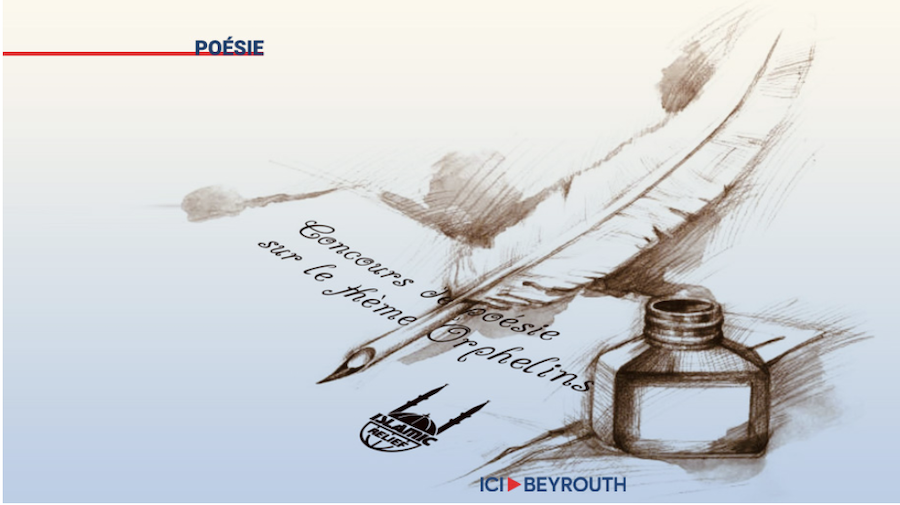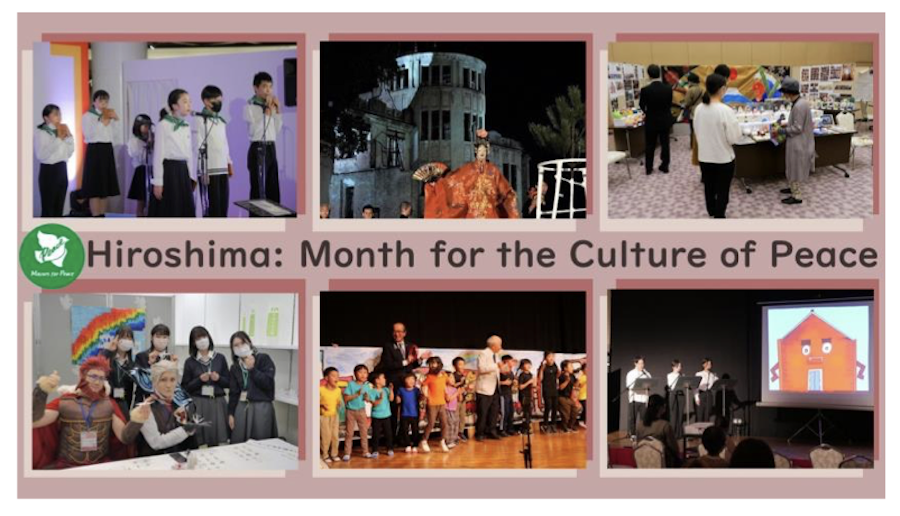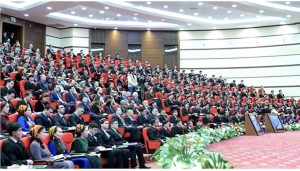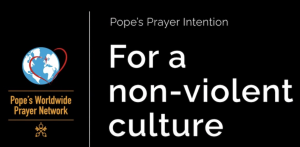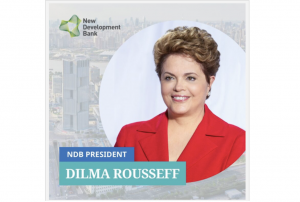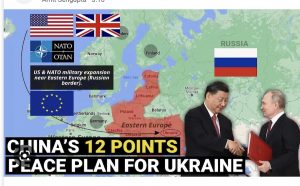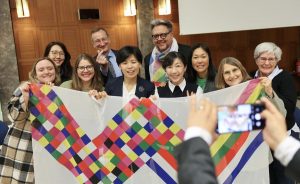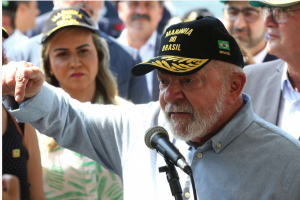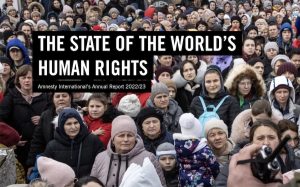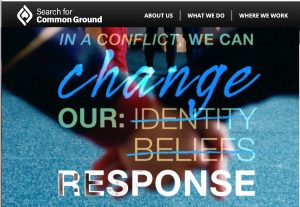Voices of reason and hope
In a world torn by war, intolerance and xenophobia, there are still important voices of reason and hope.
Speaking to the opening of the 37th African Union Summit, Lula da Silva, the President of Brazil, reaffirmed the partnership and bond between the country and people of Brazil and their sister continent of Africa: “The African struggle has a lot in common with the challenges faced by Brazil. More than half of the 200 million Brazilian citizens recognize themselves as Afro-descendants. We, Africans and Brazilians, must chart our own paths within the emerging world order. . . . Resuming Brazil’s rapprochement with Africa means recovering historical ties and contributing to the construction of a new, more just and supportive world order.”
Also in Africa, Senegal elected a new President, Bassirou Diomaye Faye, who is young and dynamic. In his first Presidential address to the nation, he promised “to reach out to everyone, to bring together, reassure, appease and reconcile, in order to consolidate the peace, security and stability essential to the economic and social development of our dear country” He recalled “our valiant resistance fighters, famous or unknown heroes, who, giving themselves body and soul, defied the odious colonial system and its so-called civilizing mission, to defend the freedom of our people and their values of culture and civilization.”
President Faye challenged his countrymen to take up “the historical responsibility to consolidate our sovereignty by breaking the chains of economic dependence,” through the “the construction of African integration and the achievement of the objectives of the Zone. of African continental free trade.”
In Europe and North America, there are eloquent political candidates who oppose the dominant political discourse of war and xenophobia.
In France, with the cry of “PEACE! PEACE! PEACE! That is our vote! Peace in Gaza! Recognition of the State of Palestine! Punishment of war criminals! Peace in Ukraine,” Jean-Luc Melanchon concluded his address to the opening of the campaign of Action Populaire for the June election to the European Parliament. He called for a force for peace “capable of engaging the new generation. That force is the people. We are the forward detachment. That force is a collective intelligence.”
Melanchon denounced the current policies of war: “War can produce nothing else except deaths, victims, desolation, destruction! War is the failure of the human condition. War is the failure of civilization. War! War will never produce anything other than war again! Always war, more war!”
In the United States there are good independent candidates, , although they are allowed very little media attention, in a Presidential campaign dominated by Biden and Trump. Independent candidate Cornel West says, “I want to raise my voice to mobilize people and get people to see that Trump is leading us toward second civil war and Biden is leading us to a third world war.”
West calls for disinvestment from the military: “62 cents for every one dollar in the discretionary budget in Washington goes to the military. We have 800 military units around the world and special operations in 130 countries. We have to cut back massively on military spending and put it directly into universal basic income.”
Jill Stein, who seeks to be the Green Party candidate for President, also calls for disinvestment from the miitary: “We are spending $12,000 this year maintaining forever wars in the Forever War Machine—$12,000 per household—in our tax base.” She says that “these funds could be more effectively used to address domestic issues.” Stein focuses her campaign on the Green Party’s core principles of environmental sustainability, social justice and a commitment to nonviolence.
Also in the United States, there is a renewed mobilization of trade union activism led by the dynamic President of the United Auto Workers, Shawn Fain. Speaking to autoworkers seeking to unionize the Mercedes-Benz factory in Alabama, Fain said “Working class people, like all of you here today, have the power to change the world. You have the power to change your circumstances. You have the power to take back your time. To take back your life. To win real time off the job. A fair wage. Good healthcare you can afford. A better life for your family. For all of Alabama. . . . Without a Union contract, they have all the control. You have the power. You just have to recognize it and use it. Let’s finish the job that started so long ago. Let’s walk a new path for working-class people together in solidarity.”
On a global level, Mary Robinson delivered the keynote address to the assembly of the Inter-Parliamentary Union. She is the President of The Elders, a group of independent global leaders founded by Nelson Mandela who work for peace, human rights and a sustainable planet. She told the parliamentarians: “The Elders are calling for long-view leadership to tackle existential threats and to build a more resilient and equal society. Long-view leadership means showing the determination to resolve intractable problems, not just manage them. The wisdom to make decisions based on scientific evidence and reason and the humility to listen to all of those affected.”
Finally, the speech by Nobel Peace Laureate Shirin Ebadi on International Women’s Day decried the lack of women’s equality everywhere in the world, and especially the worst cases of Israel and Palestine, Iran and Afghanistan. She expressed the conclusion of last month’s CPNN bulletin and blog that Insofar as women take leadership, we have a greater chance that coming changes will lead to a culture of peace,
And In this month’s blog, we write that the leadership shown by Lula and Faye give hope that perhaps democracy can survive in Africa and Latin America by gaining freedom from the control of the grand capitalists that rule in Europe and North America.
| FREE FLOW OF INFORMATION
Speech by Brazil President Lula at the opening of the 37th African Union Summit |
HUMAN RIGHTS
Amnesty International: Julian Assange’s five-year imprisonment in the UK is unacceptable |
SUSTAINABLE DEVELOPMENT
Youth Lead Global Strike Demanding ‘Climate Justice Now’ |
WOMEN’S EQUALITY
Dr. Shirin Ebadi Speech In Paris on International Women’s Day |
| DISARMAMENT & SECURITY
UN Security Council Holds Rare Nuclear Disarmament Debate |
EDUCATION FOR PEACE
Colombia: The first meeting is held in Cali to weave a network of peace initiatives in the territories |
TOLERANCE & SOLIDARITY
Pro-Palestinian protests and encampments sweep campuses of major universities across the United States |
DEMOCRATIC PARTICIPATION
First message to the nation from President Bassirou Diomaye Faye – on the eve of Senegal’s independence day |
